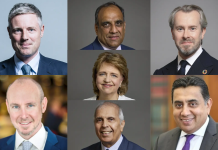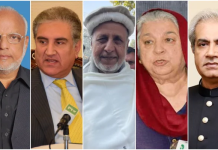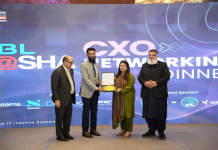ISLAMABAD, JUL 4 /DNA/ – Growing concerns over the ethical vacuum and fragmented understanding fostered by dominant Western knowledge systems have underscored the urgent need to reassess contemporary epistemologies through the lens of Islamic tradition. The Islamic concept of knowledge fosters the holistic development of the human personality and builds information, knowledge, and skill upon moral and spiritual foundations. A system of thought and education grounded in social realities and religious principles can serve as an effective means to address global crises and promote human dignity.
This was observed by Prof. Dr. Anis Ahmad, renowned scholar and vice chancellor of Riphah International University, while delivering a seminal lecture titled “Revisiting the Concept of Knowledge,” at the Institute of Policy Studies (IPS), Islamabad, as part of its lecture series “The World Today and the Future of Humanity.”
The event was organized in collaboration with the Markfield Institute of Higher Education (MIHE), UK, International Institute of Muslim Unity, Malaysia, and Islamic Studies Department at Bahauddin Zakria University (BZU), Multan. Head of Research at MIHE, Dr. Haroon Bashir, and Dr. Abdul Quddoos Sohaib from BZU also spoke on the occasion. The event was moderated by Prof. Dr. Mustafeez Ahmad Alvi.
In his address, Dr. Anis Ahmad critiqued the prevailing Western paradigms of knowledge, which he said have contributed to global ethical disorientation, deepening inequalities, and environmental degradation. He emphasized that the modern commodification of knowledge has reduced it to an economic and bureaucratic tool, severed from its spiritual, moral, and holistic dimensions.
He argued for a revival of the Islamic concept of knowledge, which rests on Tawheed (divine unity) and Wahi (revelation) as foundational sources. Prof. Ahmad underscored that in Islam, knowledge is not merely an intellectual exercise but a moral and transformative endeavor that connects human beings to their Creator and one another through justice, ethical responsibility, and the pursuit of the common good.
Citing examples from classical Islamic thinkers such as Ibn Sina and Ibn Arabi, he highlighted their efforts to integrate reason, revelation, and spiritual insight. He pointed to the Qur’anic emphasis on concepts like tafaqquh (deep understanding), ta’aqqul (rational reflection), and tadhakkur (moral remembrance), stressing the need to reconstruct educational and epistemic frameworks grounded in these principles.
The lecture concluded with a call for intellectual decolonization and a rejuvenation of Muslim educational institutions that not only produce functional knowledge but also cultivate wisdom (hikmah), ethical behavior, and holistic human development.
Dr. Haroon Bashir identified that Eurocentric approaches were implanted in Muslim and other non-Western societies through colonization and sustained through neo-colonial strategies.
Dr. Abdul Quddoos said that the thoughts generated from the scholarly discussion marked a meaningful contribution towards building an Islamic epistemic paradigm rooted in transcendence, ethics, and human dignity.
The event was attended by a large number of scholars, educators, students, and researchers from different universities, regions, and countries, in-person and online.

















